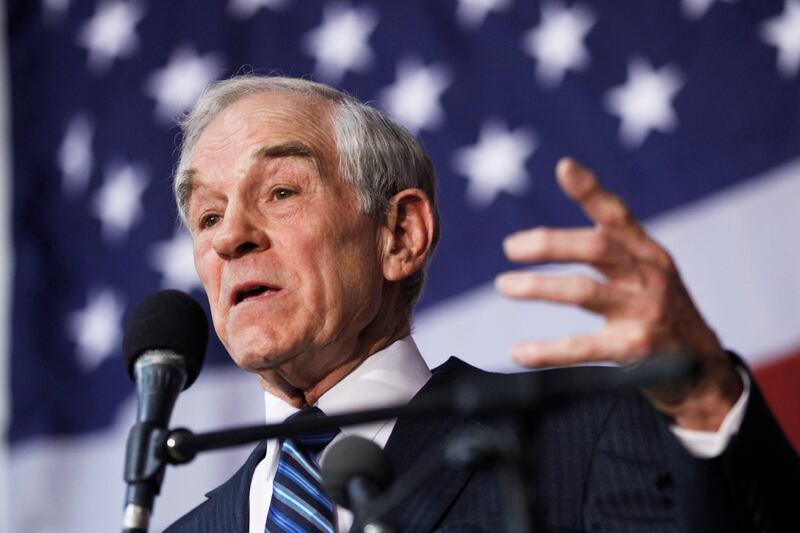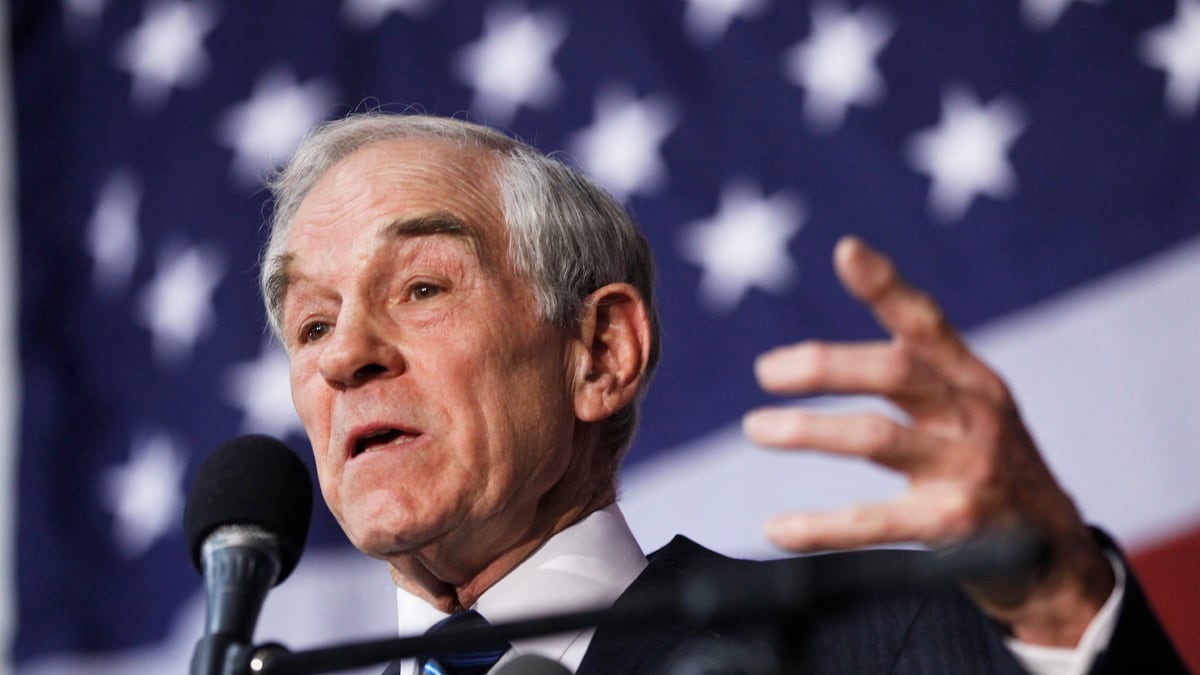“My fellow Americans: the movement for change that’s taken shape with my campaign is too important and too promising to allow its distraction or destruction by persistent misunderstandings concerning some of my own past mistakes.

I therefore come before you tonight to confront four tough questions relentlessly raised by my critics—serious challenges that rightly trouble many patriotic citizens who otherwise share the values of liberty and limited government that have always animated my career.
1. First, I need not only to disavow but unequivocally to condemn the outrageous racially tinged comments that appeared in a series of Ron Paul newsletters sent out to subscribers some 20 years ago. As I’ve previously explained, I didn’t write a word of this material and have no real memory of reviewing it before publication. I trusted others to write and market my newsletters, and I clearly misplaced my trust. There is no excuse for my carelessness in handling this situation, nor my stubbornness in delaying acknowledgment of my errors.
Reading over these unsavory observations after two decades, I’m struck above all by one observation: in some ways, the nation has changed for the better in the intervening years, and so have I. The thoughtless, casually cruel, racially reckless comments that tarnished my name in the 1990s would be unthinkable in today’s public sphere, and I can’t imagine allowing them to be associated with my cause in any context. My commitment to liberty includes a passionate determination to liberate our minds from all forms of racial or religious bigotry.
2. In that context, I also need to make it clear that white supremacists, neo-Nazis, Holocaust deniers, and peddlers of paranoid conspiracy theories are not welcome in my campaign. I’ve always renounced the ideas of vile, violent fringe elements, but as an aspirant for the nation’s highest office, I also reject their support, in any form. Yes, I want to win this race; but no, I don’t want to win it through assistance from some of the most irresponsible voices in the public arena. I feel indignant and embarrassed, for instance, that a former Grand Wizard of the Ku Klux Klan and purveyor of America’s leading Nazi website prominently promotes photos in which I unwittingly shook his hand, and tries to legitimize his un-American ideas by raising money for my campaign. I don’t want such money, and won’t accept funds from toxic sources. The American people have a right to expect that anyone seeking the nation’s highest office will keep safe distance from all involvement with loathsome racist thugs.
3. Along similar lines, I make clear tonight that my campaign will not tolerate anti-Semitism of any kind—and I recognize that the vicious anti-Zionism preached in much of the Islamic world counts as today’s most dangerous form of anti-Semitism. Just as classical Jew hatred involves denial to Jewish people of rights conferred on every other nationality, so anti-Zionism involves the denial to the world’s only Jewish nation of the rights conferred on every other state—including the very right to exist. I support America’s successful determination to repeal a noxious U.N. resolution equating Zionism with racism—since Zionism is no less legitimate than any other form of nationalism.
This does not mean I support every policy of Israeli governments—American patriots, like Israeli patriots, have every right to speak up when duly elected leaders in Jerusalem reach decisions with which we disagree. But I strongly oppose efforts by President Obama and other leaders to impose their ideas for peace on the sovereign nation of Israel or on the Palestinian Authority. American micromanagement of the so-called peace process helps no one, and only detracts from our own national security.
In prior statements, and in my most recent book, Liberty Defined, I expressed strong sympathy for the Palestinian struggle and spoke critically of longstanding Israeli policies. But my concept of presidential leadership makes it inappropriate for a commander in chief to offer such comments or to prejudge the Middle East dispute—I want an America less involved, not more involved, with the affairs of other nations.
My desire to eliminate foreign aid—to Egypt, Jordan, and the Palestinians, as well as the Israelis—isn’t anti-Israeli. It’s pro-American and pro-Constitution. Like more and more Israelis, I believe any form of financial dependence on the United States is a threat to Israeli sovereignty. And in a Paul administration, there will be no change in our nation’s longstanding support for Israel’s place as a full member of the family of nations, living in security beside its neighbors—including, someday, a stable, peaceful Palestinian state.
4. Finally, let me remove all doubt tonight about the possibility that I will run an independent or minor-party campaign for president in 2012. If I fail to win the Republican nomination myself, I fully expect to support the nominee of our party in a vigorous effort to defeat Barack Obama. Until now, I have refused to rule out the notion of an independent candidacy because of my distaste for absolute, categorical pledges, but given the open, fair reception for my candidacy in GOP caucuses and primaries, I pledge to avoid a divisive, disastrous third-party effort that would only guarantee four more years of Democratic misrule. In 1988, while Ronald Reagan still led the nation and the GOP, I left the Republican Party to run as a minor-party candidate, and ended up winning less than half of 1 percent of the national vote. This experience did nothing to advance my ideals—beyond teaching important lessons about the futility of trying to work outside the two-party system.
Leading up to the convention in Tampa, I will continue to campaign vigorously for the nomination and, even more important, make the case for the principles of liberty to which I have devoted my life. If the ultimate nominee of our party embraces those ideals—or even most of them—and simultaneously demonstrates openness to a more realistic, more affordable foreign policy, I will offer that candidate enthusiastic support. Meanwhile, I hope to influence the entire party to make a real commitment to those constitutional ideals not only for the sake of victory in November, but in order to redeem our nation from the disastrous course of recent years.”
If Ron Paul made such a speech, he could quickly put to rest most of the troubling questions about his campaign—though he’d still need to handle questions about his age if he ever approached the nomination. (He’d be older at the beginning of his term than a weary Reagan was when he left the White House after eight years.)
The question for Paul’s ardent supporters is: why wouldn’t their champion offer the constructive clarifications suggested above? If he truly counts as a savvy, mainstream conservative, why wouldn’t he want to apologize without equivocation for racist newsletters, distance himself from extremists and bigots, make it clear that he’s not bitterly anti-Israel, and unashamedly embrace the Republican Party—which, for all its faults, remains the only possible vehicle to move the nation in a more conservative direction?
Doesn’t his ongoing refusal to reassure the public forcefully and candidly on these crucial points give powerful ammunition to those who suggest that Ron Paul’s crotchety, avuncular exterior only partially hides an angry crank and conspiracist who deserves no serious consideration for high public office?






